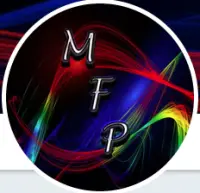I've been aware of indie presses shutting down for a long time, but really started paying attention to it in the last three years. Besides being an indie author myself, I have many friends whose outstanding work is published by indie presses and a few friends who are publishers. Every time an indie press shuts down, authors are left scrambling to find new homes for their books, artists lose work opportunities, editors have one less available gig, and readers are left with less options.
I've been trying to figure out why these presses fail. It definitely has something to do with money. This I know because, for example, I'm writing this on a day where I had two face-to-face and one phone job interview, so I understand there's very little money in indie publishing. However, I also think preparation, presentation, market knowledge, and hustle are crucial factors that play a huge role when it comes to keeping a small press operating. We all love literature, but there's also a business side to it that's constantly changing, adapting to new technology, and competing with magazines, video games, movies, Facebook, etc.
Here's my theory in a nutshell: indie presses fail because they either do too much with no sales or because whoever is running the press doesn't understand that, for us indie folks, no budget is not a transitory issue; no budget is a way of life. In any case, I asked some people more knowledgeable than myself why so many indie presses fail. Their responses were harsh, honest, funny, and hopeful. The people I asked to participate run some truly amazing presses, so take note and then go buy their books. Seriously. Now let's tackle this: why do so many indie presses fail?
![]() Jennifer Barnes, Raw Dog Screaming Press:
Jennifer Barnes, Raw Dog Screaming Press:
Publishing is a tough business and there’s not much easy money in it. The people attracted to publishing generally care a lot about books but don’t necessarily have a knack for business or a particular interest in it. There is more number crunching and accounting than you would expect and you can’t run a business for long without doing those things. Another problem is that the industry keeps changing. First print-on-demand technology revolutionized things and then ebooks. Like other media industries, publishing still hasn’t found a status quo. Things that worked five years ago don’t work now. Some things that worked six months ago have already run their course. It’s hard to get a foothold in any business but when it keeps changing, and there is no clear path to success, there’s going to be a high turnover. The reason we have been able to keep going is because we do just about everything ourselves from layout and cover design to royalty statements and banking. Managing expectations (yours and your authors’) and not overextending yourself with too many projects is key to survival, especially in the early days.
![]() J. David Osborne, Broken River Books:
J. David Osborne, Broken River Books:
The single biggest obstacle indie presses face is that they have to sell books at a low cost to a high number of people. If you're pricing a book at around $3-4, and that money is then divided between two/three people, it becomes extremely difficult to recoup costs, and a single botched check from the printers (which has happened to me about five times) or an unexpected emergency (which has happened to me about twenty times) can send you spiraling into despair and oblivion (which has happened to me, I'm not kidding, about 200 times).
Read Seth Godin's The Dip and realize that pretty much all businesses go through this. I could ramble for days, but publishing is a rich person's arena. You have to pump a lot of money in with little expectation of return. OR, if you grew up / are still are poor like me, you have to get clever. I do anything I can to save money (unless it affects the books), I put out quality writing, and I put most of the power into the hands of the authors I work with. Make friends, empower them, and keep your costs low. And for god's sake keep your head down and keep going.
Ioanna Mavrou, Book Ex Machina:
We love what we are doing and since the beginning we’ve focused on making books that are beautiful objects, high quality books that can sit comfortably next to books by big publishers on a shelf.
 So far we’ve been breaking even, which we’ve done by keeping our overhead low: unlike a big publishing company that has hundreds or thousands of employees, we are two people doing everything ourselves. We spent a lot of time researching and learning about all aspects of bookmaking: from bookbinding and materials to copy-editing and layout and book design. Because our time and resources are limited we only publish what we absolutely love, no time to waste on anything less than that!
So far we’ve been breaking even, which we’ve done by keeping our overhead low: unlike a big publishing company that has hundreds or thousands of employees, we are two people doing everything ourselves. We spent a lot of time researching and learning about all aspects of bookmaking: from bookbinding and materials to copy-editing and layout and book design. Because our time and resources are limited we only publish what we absolutely love, no time to waste on anything less than that!
I think the biggest obstacle for small publishers is distribution; we are still striving to get enough attention and get the word out about our books. I think that is the thing that will determine how long we can stick around, if we can reach enough people who love books.
Last but not least, we’ve been lucky to have the support of some big writers: you’d be surprised how generous and supportive writers are with their time and words if they like what you are doing.
Samuel Binns, Sutra Press:
 Although online publishing has made things easier and cost less, it all comes down to commitment. Most independent publishers have limited funding, meaning publishers have to be committed regardless of future sales. It's often a labor of love, but many new independent publishers need to embrace the struggle and not just the end result. Many editors may have a full-time job, meaning that as soon as they arrive home, the poetry business begins. And it often takes months before the end result is produced, and the work is often more than one initially expects. The independent publishers that do stick around are the ones that not only balance their own lives by exercising with the dopamine as well as the hefty weights of poetry, but also publishers that foster community within the greater poetry community. We are little houses in the poetry village, and I hope we continue to welcome our neighbors.
Although online publishing has made things easier and cost less, it all comes down to commitment. Most independent publishers have limited funding, meaning publishers have to be committed regardless of future sales. It's often a labor of love, but many new independent publishers need to embrace the struggle and not just the end result. Many editors may have a full-time job, meaning that as soon as they arrive home, the poetry business begins. And it often takes months before the end result is produced, and the work is often more than one initially expects. The independent publishers that do stick around are the ones that not only balance their own lives by exercising with the dopamine as well as the hefty weights of poetry, but also publishers that foster community within the greater poetry community. We are little houses in the poetry village, and I hope we continue to welcome our neighbors.
Rose O'Keefe, Eraserhead Press:
The only way you truly fail is if you quit. You’re going to have high periods and low periods. You’re going to mess up. A lot. Your enthusiasm is going to wane. But that’s just part of the business. The problem most people have is that they give up when they hit their first kink in the road. Eraserhead Press has lasted 18 years simply because we use failure as a learning experience and always keep going.
Sarena Ulibarri, World Weaver Press:
I believe many small presses fail because they forget to be small. When I first took over World Weaver Press, we had 16 new books planned for the year. We managed to publish 9 the first year, and 9 the second year, and honestly, 6 or 7 titles per year would be a more comfortable number because of the size of our staff and all the other things we have going on in our lives. If I’d committed to doing all 16, none of the books would have sold very well, and I would have quickly burned out. With fewer titles, we can spend more time making sure the books are released with the best production and publicity we can manage. Too many, and details start to slip through the cracks, publicity suffers, and authors don’t feel they’re taken care of. Many of the small presses that have crashed in the last couple of years were churning out too many titles too quickly, or they had more projects on deck than they could handle, and when they closed, dozens of authors who thought they had a book deal were left out in the cold. A small press should not act like a content mill. We owe the authors we choose to work with a better publication experience than that.
![]() Michael Seidlinger, Civil Coping Mechanisms:
Michael Seidlinger, Civil Coping Mechanisms:
Historically, publishing fails. Just like bookstores, it’s always been a business model that runs on razor thin profit margins. The “sustainable” publishing house typically fills out its operating budget with a few lucky hits, bestsellers, but it’s all too common to see publishers seeking additional funding, whether it be via donations, going nonprofit or getting assistance/an umbrella (a foundation with nonprofit status funneling grant money for a fee to the press), opening their own storefronts/bars, etc. This is a high passion, low profit business, but hell, look at the people that stick around. Most, if not all, are doing it for more than money. But yeah, why do indies fail? Because of the money part, and the lack of it. The reason CCM has succeeded is through the community that we’ve been so lucky to have, growing and evolving around us. They have fueled the press via taking part in duties, buying books, or better yet—spreading the word about our books and our press efforts. At the end of the day, I still end up losing money, and putting more money into the press, even if that means not eating 3 meals a day, finding ways to make extra cash for the press; CCM sticks around because there’s no other choice: We are in this together and we're coping.
![]() Richard Daniels, Wild Boar Books:
Richard Daniels, Wild Boar Books:
I'm not entirely sure why small presses fail, but what I can tell you from our experience is that it is very difficult to draw attention to what it is you are doing — both your philosophy/outlook as a small press and the work that you are presenting. I think you often have to present yourself as exciting or plucky in some sense in order to appeal to people's fascination for work that is 'honest' and less corporate whilst still displaying professionalism over any whiff of the amateur. I think on a budget of virtually nothing in the beginning, that is a big ask, and capturing readers attention so they want to investigate and invest in you is incredibly hard. That's certainly an ongoing challenge for Wild Boar Books!
Leland Cheuk, 7.13 Books:
I'd say two major reasons are book economics and publisher burnout from outsized author expectations. Books are a tiny-margin product, which means it's hard to even break-even without selling high volumes. And authors invest a lot of their egos and insecurity in their books and some are better at hiding it than others. If I told you that you'll likely lose $500-1000, if not more, on every title and have to be a free, on-call psychotherapist for anxious authors, would you do it?
![]() Kaelan Rhywiol, Multifarious Press:
Kaelan Rhywiol, Multifarious Press:
I think small presses fail for a number of reasons, but you should know that I'm new to running one, if not new to the business.
1) The owners over-commit resources thinking they'll make big cash fast. That time is past for small press. There was a big bubble between 5 and 10 years ago, business wise, where that was possible. It's not like that anymore, and anyone opening/running a press now needs to know and understand it has to be for a purpose and for the long haul. The owners can't make promises they can't keep, they can't over-commit their own money, time, or energy to it thinking it will turn around and pay out like a cash cow.
2) Lack of knowledge of books and publishing. As a small press, you have to slowly build a reputation of releasing quality work that fits your goals.
3) You have to have a goal to open/run a press. For me, it's getting more diverse books into the world and acting as a sort of safety catch to talented, diverse voices who've been overlooked by traditional publishing.
4) They aren't picky (meaning they put out less than quality work). Readers have long memories, and the ones who are buying from small presses are the discerning ones who will hold it against you if you give them crap for their hard-earned coin. Big 5 publishers can get away with crap, small presses can't.
5) Lastly, lack of investment in good cover art and effective marketing. You have to have good, genre-defining cover art, you can't avoid it. You also need to put work and, if possible, money into the right marketing.
So, why do you think, be it as a publishers, reader, or writer, so many indie presses fail? Sound off in the comments!

About the author
Gabino Iglesias is a writer, journalist, and book reviewer living in Austin, TX. He’s the author of ZERO SAINTS, HUNGRY DARKNESS, and GUTMOUTH. His reviews have appeared in Electric Literature, The Rumpus, 3AM Magazine, Marginalia, The Collagist, Heavy Feather Review, Crimespree, Out of the Gutter, Vol. 1 Brooklyn, HorrorTalk, Verbicide, and many other print and online venues. Y
 Jennifer Barnes,
Jennifer Barnes,  J. David Osborne,
J. David Osborne,  Michael Seidlinger,
Michael Seidlinger,  Richard Daniels,
Richard Daniels,  Kaelan Rhywiol,
Kaelan Rhywiol, 






